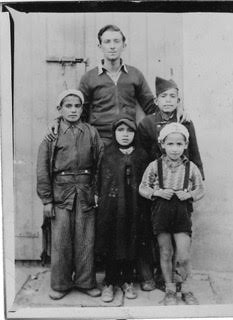News
Black History: Chapters from My Life
January 31, 2022

In 1953, Mrs. Graves’ fourth grade class at Masonville Elementary in Annandale, Virginia, studied Virginia History and Government. Virginia’s Constitution, printed in the Appendix of our textbook, stated that segregation was a matter of law. Two expressions – “Separate but Equal” and “Massive Resistance” – were principles of segregation.

I was in a segregated school system for all 12 grades. Massive resistance was a force in the Old Dominion under the guise of the Separate but Equal rhetoric. For me, Black history awareness began in fourth grade in a white-only school. The “colored” children went to separate schools.
Every Christmas, Dad took me along to deliver Christmas presents to a family he cared about. The father of this family worked in the Pentagon, sweeping floors and cleaning bathrooms. He often came by my dad’s office, where he was welcomed, to chat. They talked often, and my dad developed a friendship with this Black man – a friendship that was uncommon during that time because it so overtly ignored racial and socioeconomic lines.
The family’s home was near Mt. Vernon, in a small Black community that was isolated, different and poorer than my residential neighborhood. It was what was known then as a shanty town. There was no community swimming pool like the one up the street from my house. There was a lot missing in this neighborhood. Separate but equal did not compute here. There was a lot of separate and no equal at all. My dad made sure I was aware of these differences and aware of my privilege.
After earning Eagle Scout, I went to Camp Wilson to participate in a leadership training week. A fellow scout became my first Black friend. It was awkward. I knew he would not be welcome in my neighborhood, much less my school, but we had the bond of scouting. One day I made a terrible slip of the tongue when we got into an argument. I spit out the “N” word, and I couldn’t erase it. We made eye contact, and I saw how deeply hurt he was. I fumbled with words to say I was sorry, ashamed, embarrassed. I had violated him. And he forgave me. This chapter of Black history awareness entered my soul. I had learned a lesson.
In 1972, while in seminary, I signed up for Dr. Charles King’s Black/White Encounters. In these sessions, Dr. King – who was a member of the Kerner Commission established after the 1967 Detroit riots – virtually forced the white people in the class to confront and cope with our prejudices and racism. The take-away from that experience – “Be part of the solution” – became the most important chapter in Black history for me.
Black history is written throughout the pages of all of our lives. The question is: can we learn, understand and appreciate what is not white history, what is not the white experience? Addressing this question is part of what R.A.R.E. is about.
Jim Splitt serves as a transitional pastor at Our Savior Lutheran Church in Wayne, NE and is a member of the Nebraska Synod R.A.R.E Team.